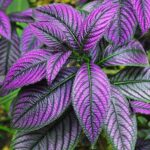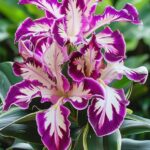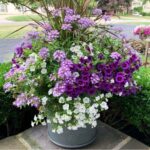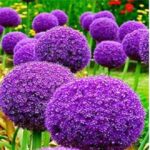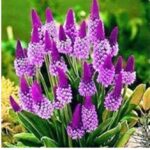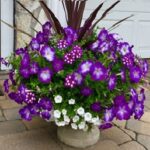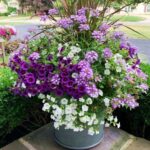Amazing purple flowers with names
Trendy Home
August 19, 2024
Uncategorized
1,348 Views
- Lavender (Lavandula)
- Known for its soothing fragrance, lavender produces spikes of small, purple flowers.
- It’s widely used in aromatherapy, essential oils, and sachets.
- Lavender thrives in sunny, well-drained locations and can attract pollinators like bees.
- Lilac (Syringa)
- Lilacs produce large clusters of small, fragrant flowers in spring.
- They are often used as ornamental shrubs in gardens and parks.
- These hardy plants prefer full sun and well-drained soil.
- Purple Coneflower (Echinacea purpurea)
- This daisy-like flower has a prominent central cone and drooping petals.
- It’s valued not only for its beauty but also for its medicinal properties.
- Coneflowers attract butterflies and bees, making them great for pollinator gardens.
- Wisteria (Wisteria sinensis)
- Wisteria vines produce stunning, cascading clusters of purple flowers in spring.
- These vigorous climbers can cover trellises, arbors, and fences.
- Wisteria requires a sturdy support structure and regular pruning.
- Iris (Iris germanica)
- Irises are known for their intricate, ruffled petals and come in various shades of purple.
- They bloom in late spring to early summer and are often used in perennial gardens.
- Irises prefer sunny locations with well-drained soil.
- Clematis (Clematis jackmanii)
- This climbing plant produces large, star-shaped purple flowers.
- Clematis vines are excellent for covering trellises, walls, and fences.
- They require a cool root zone and plenty of sunlight for the foliage.
- Petunia (Petunia)
- Petunias have vibrant, trumpet-shaped flowers that bloom profusely throughout the summer.
- They are versatile plants, suitable for beds, borders, containers, and hanging baskets.
- Petunias thrive in full sun and well-drained soil, with regular watering.
- Bellflower (Campanula)
- Bellflowers feature bell-shaped blossoms that come in various shades of purple.
- They can be found in both annual and perennial varieties, suitable for different garden settings.
- These flowers prefer partial to full sun and well-drained soil.
- Aster (Aster amellus)
- Asters produce star-shaped flowers that bloom in late summer to fall.
- They are popular for adding color to gardens when many other plants have finished blooming.
- Asters attract butterflies and prefer full sun to partial shade.
- Salvia (Salvia nemorosa)
- Salvias produce spikes of small, tubular purple flowers and are known for their long blooming period.
- They are drought-tolerant and attract pollinators like bees and hummingbirds.
- Salvias thrive in sunny locations with well-drained soil.
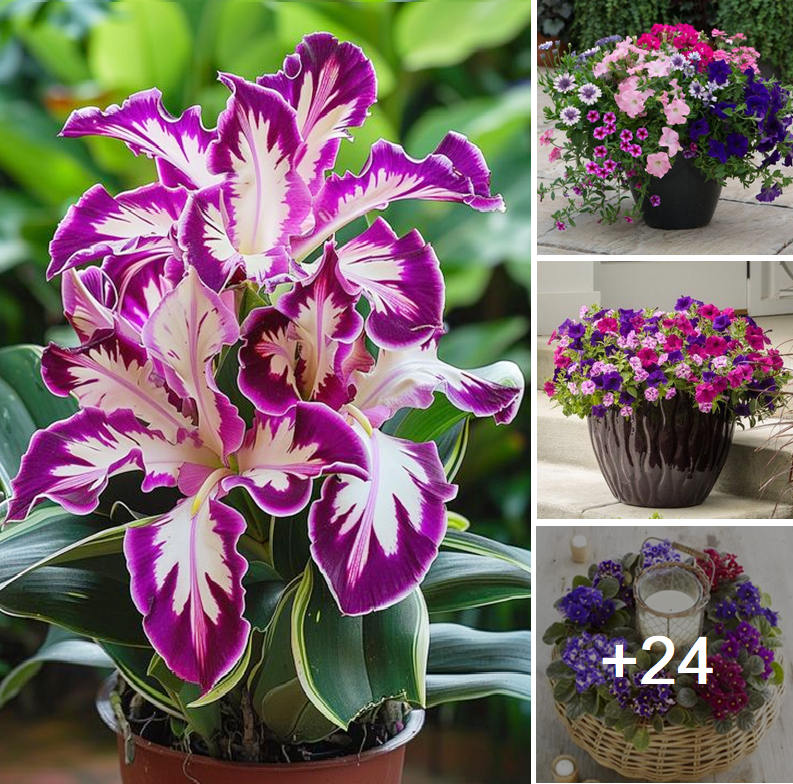
 Flower Love
Flower Love
